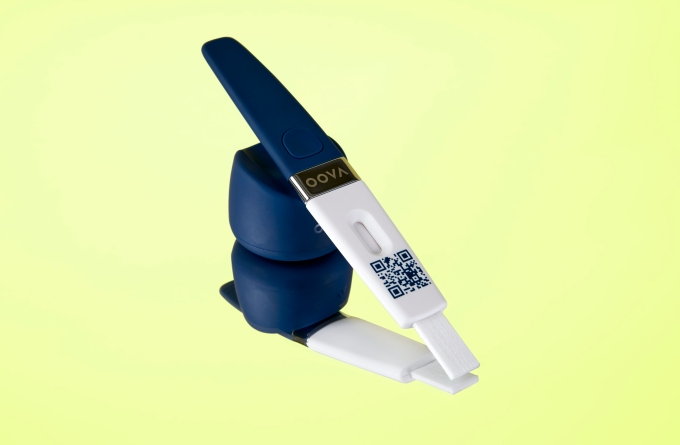Oova grabs another $10.3M, unveils membership model for at-home fertility testing
One in six people are expected to be affected by infertility at some point in their lives, and with the cost of procedures, like in vitro fertilization, costing tens of thousands of dollars for each procedure, more people seek better ways to know their reproductive health.
There are a number of startups tackling this issue, for example, Generation Prime, Flo, Future Family, Maven and Mate Fertility, which all received funding within the past few years.
Oova, a women’s health and fertility startup working in the fertility tracking segment of the market, is the latest to get additional venture-backed funding, raising $10.3 million in Series A funding for its at-home approach to translating a woman’s fertility.
It is also launching the Oova Membership. Priced at $99 per month, the membership includes The Oova Kit (a $159 value) and offers features, including personalized support via the Oova Provider network of healthcare professionals and hormone experts and access to a community of people going through similar fertility journeys.
Oova was previously profiled in 2021 when founder and CEO Amy Divaraniya, Ph.D. officially launched its at-home urine test, called Oova Kit, with $1.2 million in seed funding. The test comes with 15 days of testing strips and measures the luteinizing hormone and progesterone to provide advanced personalized analytics and real-time action plans so a woman can know her most fertile days and confirm ovulation.

Oova’s Oova Kit, an at-home fertility test. (Image Credit: Red Antler)
It is FDA registered, and the company touts it is the “only product that allows its users to sync and share results with their doctor in real time.” Divaraniya told TechCrunch that talk within the fertility industry, especially following the overturning of Roe v. Wade in 2022, shifted to data security, and unlike other period and fertility tracking companies, Oova was always HIPAA compliant and invested in secure connections with its clinic partners.
Divaraniya was mum about the company’s growth over the past year, but did say Oova is now working with over 100 clinics, up from 75 at the launch in 2021. In addition, the company has trained its model on over 10,000 cycles monitored through the platform.
“We’ve also seen a massive increase in the adoption across both consumer and clinical channels,” Divaraniya said. “Because of the adoption, it led to one of the most powerful datasets in the industry. This is a dream of information to work with. Not only do we have daily hormone measurements across tens of thousands of cycles, but we also have treatment data. We’ve been able to train our algorithms on actual hormone information across thousands of women, and then even look at intrapersonal data to understand the nuances between cycles for a single woman, leading to a very personalized experience for our users.”
Meanwhile, Spero Ventures led the new round and was joined by US Fertility, Virgin Group, Jefferson Health, Connecticut Innovations, Hannah Bronfman and Spanx founder Sara Blakely. In total, the company raised $11.5 million.
“Oova has revolutionized the way we understand our hormonal health,” said Sara Eshelman, partner at Spero Ventures, in a written statement. “By making clinical-grade hormone monitoring convenient and cost-effective for daily use, Oova is empowering its users to understand their cycles, improve fertility outcomes and manage their symptoms.”
Divaraniya said Oova went after a new funding round when its technology reached some heavy adoption and the company received feedback from physicians asking for Oova to test additional hormones.
Patients are also using Oova’s technology for use cases that it wasn’t initially designed for, like the early part of pregnancy and postpartum, but are finding value in the data. In addition, the company is eyeing all other phases of a women’s health.
“We started off with fertility because it’s a place that I’m very passionate about, but what is also very clear is that all the different phases of a woman’s life are dictated by hormones,” she said. “If you can understand the different patterns that happen in classic urban spaces, you can actually start adjusting those.”




